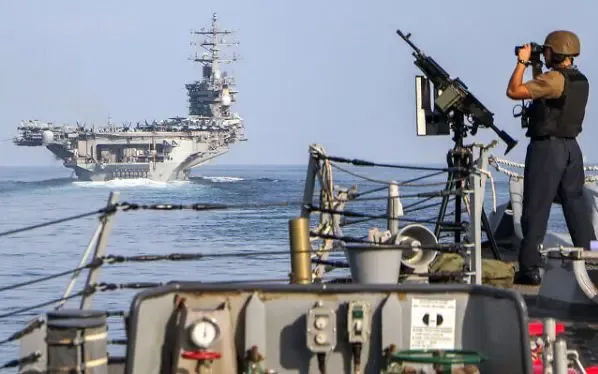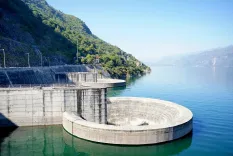Maritime Routes Remain Tense as Houthis Dominate Coastal Regions, Warns Yemeni Leader

Synopsis
Key Takeaways
- Yemeni leader Rashad Al-Alimi warns about maritime tensions.
- Houthi forces' control of coastal areas remains a concern.
- International community urged to support Yemeni government.
- US military conducts airstrikes against Houthi positions.
- Conflict escalates amid ongoing Israel-Hamas tensions.
Aden, March 18 (NationPress) Yemeni Presidential Leadership Council Rashad Al-Alimi cautioned that maritime routes are likely to remain a continual source of regional instability as long as Houthi forces retain control over Yemen's coastal regions.
This declaration was made during Al-Alimi's meeting with French Ambassador to Yemen Catherine Corm-Kammoun in the southern port city of Aden, where they reviewed recent developments in the region, particularly the ongoing Houthi assaults on international shipping lanes, as reported by Xinhua news agency quoting the state-run Saba News Agency.
Al-Alimi emphasized the urgency for the international community to implement punitive measures against the Houthi militias, asserting that supporting the Yemeni government, a member of the United Nations, is the only viable path to quell terrorist threats and restore state institutions and authority over all territories.
He further highlighted Yemen's critical role as a strategic ally in securing maritime traffic and maintaining international peace and security.
The Houthis currently govern most of the northern regions, including Sanaa and the vital Red Sea port of Hodeidah. The internationally recognized Yemeni government, overseen by the Presidential Leadership Council since April 2022, primarily governs the southern and eastern areas, with Aden serving as the interim capital.
On Saturday evening, the US military conducted a new round of airstrikes targeting Houthi positions in northern Yemen, resulting in the deaths of 53 individuals, including five children and two women.
This action followed Trump's commitment to persist with air attacks until the Houthis ceased their assaults on international shipping lines and vessels. He issued a stark warning to the Houthis, stating that if they do not stop their attacks, “hell will rain down upon you like nothing you have ever seen before.”
In response to the US strikes, Houthi forces declared on Monday that they had targeted the USS Harry Truman in the northern Red Sea for the second time within 24 hours, asserting that the assault involved multiple ballistic and cruise missiles, along with drones, in a confrontation lasting several hours.
The US Navy has yet to confirm or refute the alleged attack on its aircraft carrier.
The renewed hostilities follow Israel's suspension of goods and supplies into Gaza on March 2, coinciding with the conclusion of the first phase of a ceasefire agreement.
On March 11, the Houthi group announced its intention to resume attacks against any Israeli vessel in the Red Sea, Arabian Sea, Gulf of Aden, and Bab al-Mandab Strait until the crossings of the Gaza Strip are reopened and aid is allowed in.
From November 2023 to January 19, the Houthi group launched numerous drone and rocket strikes against Israeli-affiliated ships and cities in a show of solidarity with Palestinians amid the ongoing Israel-Hamas conflict. The attacks later extended to include US and British vessels following the US-British naval coalition's intervention, which initiated air raids and missile strikes against Houthi targets in an effort to deter the group.









